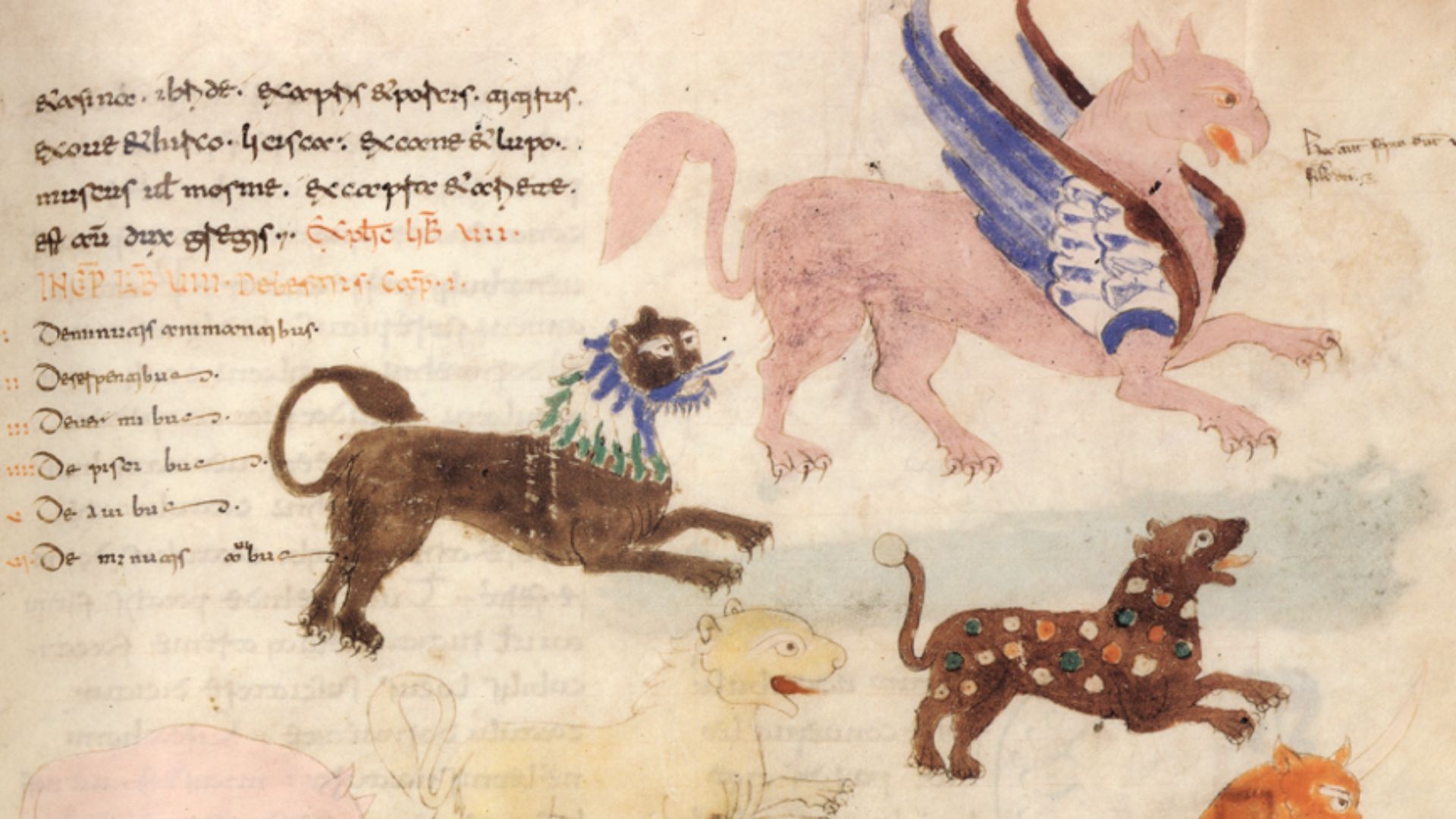Conversation: Approaches to Medieval Environments

Manuscript of Hrabanus Maurus, De Rerum Naturis, Archivio dell'Abbazia di Montecassino, Cod. Casin. 132, f. 191 (De bestiis), detail. Date, second quarter of the 11th century.
Research on past environments sheds new light on material realities of the past, as well as the structures of thinking and knowing which people used to understand the world around them. Religion and science provided the frameworks for understanding nature and its relationship with men. In periods of significant social change, like the Middle Ages, people of the past retooled their understanding of how the world around them worked. Did monotheistic religion prompt a different understanding of the natural world after the Roman empire? How consistent were the patterns for understanding nature and the environment across the territories of the Mediterranean and European worlds? What bodies of knowledge were deployed to explain and understand nature?
This evening’s event features two short papers by scholars working at the cutting edge of studies in environments of the Middle Ages in Europe and Western Eurasia. After the papers, Caroline Goodson will moderate a conversation addressing new questions around the medieval environments.
Michele Campopiano: "Dominion, Environment, and the Idea of Nature in the High and Late Middle Ages: Political and Ideological Implications"
Helen Foxhall Forbes: “Human-environment Relationships in their Early Medieval Italian Intellectual and Social Contexts"
Speakers bios:
Michele Campopiano is Professor of Medieval History. He studied at the Scuola Normale Superiore and the University of Pisa. Between 2014 and 2024, he was Associate Professor at the University of York, United Kingdom. He was awarded a Fellowship from the Alexander von Humboldt Foundation for senior researchers for the project Stadt und Fluss im Mittelalter: Wasserbau in Rhein- und Pogebiet im Vergleich (ca. 1300–1550). Campopiano is also the author of a study on environmental history and the relationship between society, culture, and nature in the Middle Ages, Storia dell’ambiente nel Medioevo. Natura, società, cultura (Carocci), and co-editor of the volume Conflicts over Water Management and Water Rights from the End of Antiquity to Industrialisation (Franz Steiner Verlag).
Helen Foxhall Forbes is Professor of Medieval History at Ca' Foscari University, Venice, and the PI of Science, Society and Environmental Change in the First Millennium CE (ERC Consolidator Grant 101044437). She is a member of NICHE. Her research focuses on Europe and the Mediterranean in late antiquity and the early Middle Ages, centering on issues relating to intellectual culture, social history, and human-environment relationships. She is currently completing a translation of the Dialogues of Gregory the Great for Liverpool University Press's Translated Texts for Historians series, and she is one of the editors of Cambridge Elements in the Late Antique World.
For access to the Academy, guests will be asked to show a valid photo ID. Backpacks and luggage with dimensions larger than 40 x 35 x 15 cm (16 x 14 x 6 in.) are not permitted on the property. There are no locker facilities available. You may not bring animals (with the exception of seeing-eye/guide dogs).
The Academy is accessible to wheelchair users and others who need to avoid stairs. Please email us at events@aarome.org if you or someone in your party uses a wheelchair or other mobility devices so that we can ensure the best possible visitor experience. If you are someone with a disability or medical condition that may require special accommodation, please also email us at events@aarome.org.